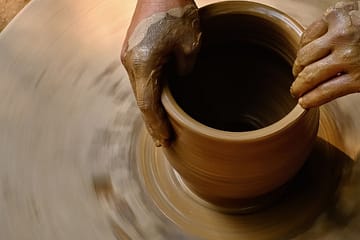
Last week someone asked me point blank and without context, “What is your relationship to this land?†I had the very uncomfortable feeling that I was being tested.
I had just met this person. I was surprised by how intimate the question felt. It felt like he was asking me about my relationship to my parents. Or my relationship to God. There are so many layers. I’m an introvert and unless I have clear context and invitation, I might not share everything right away.
Unfortunately there were some missed opportunities for listening and understanding in our conversation. Stepping back I appreciate that the question was attempting to strike right at the unspoken heart of just about every aspect of how we live.
Approaching land as something that you simply buy and use is resulting in horrible ecological consequences. Western culture is based on this principle and as much as I do not like it, I have not liberated myself from it either.
There are so many other dimensions to talking about our relationship with the land.
Land connects us to beauty and peace.
All my life I have gone to the water to relax and get perspective. I love watching the sunset over the lake by my house. The beauty of nature brings me peace.
Land nourishes and receives our bodies.
The strawberries are ripening in my garden and it never ceases to feel like the most beautiful miracle that Mother Earth offers up such sweet berries for me to eat. My body has grown out of everything that I’ve eaten and will eventually return to the soil.
Land situates us in an ecosystem.
I’m grateful for the people out these measuring, recording, and deeply listening to the weather, phenology, and other indicators of the health of our environments. This is a relationship of attention and close listening. The quantitative information is very helpful for making decisions about the welfare of the land.
Land connects us to cosmology.
The land connects me to the universe story. When I listen really deeply to the limestone bluffs I can remember the ocean that was once in this place and the countless tiny sea creatures that died on the sea floor, eventually creating rock. I wonder at the water covering our earth and how it arrived in part from icy comets crashing into the earth. In the North Woods the rivers carry an orange tinge from iron; iron that is also part of the core of our earth; iron that was formed in a supernova. To know the land is to know the life of the universe and it’s evolutionary impulse.
Land connects us to history.
Everything that happens in a place leaves an energetic ripple. For this reason some say that the water and land have memories. Pilgrim’s travel to places like the sacred Bohdi tree in India where the Buddha was enlightened in order to feel the vibration of that moment more than two thousand years later. The land also remembers the tragedies that happen. Charles Eisenstein relates a story of how the Camp fires in California last year began at the location where there had been a terrible massacre of the indigenous people.
The land connects us to the people indigenous to a particular place.
Indigenous cultures express a complete inter-being with the land; they are the land and the land is them. I do not know how to be fully present with the land without also building relationships with the indigenous people.
Returning to my conversation I had with my new acquaintance, I had no idea if his question what about my cosmology, sense of history, relationships with indigenous people, scientific knowledge, or favorite places to recharge in nature. No wonder I did not know where to start the conversation!
No wonder we are struggling to have meaningful public conversations about our relationship to the land! Some people might work to protect the boating, golfing or recreation that brings so much beauty and peace in their lives. Some people are invested in water quality or indigenous rights. We might start fighting over positions rather than having deeper dialogues about the relationships and beliefs underneath our point of view.
Talking about our relationships to the land might feel as uncomfortable as articulating your relationship to God, but I think we should keep practicing. It is the invisible story underneath every aspect of how we live our lives. The journey of coming truly home to our bodies and to the present requires this work of us.
With love,
Emily
Roots and Kinship: A Gathering to Revitalize Our Relationships with Mother Earth and Each Other.
A free community gathering featuring Lyla June Johnson and Wisdom Dances. Friday July 26, 6:30 p.m. outside the Lake Nokomis Community Center
Connect with the land through dance!
Relationships are a dance, and dance is a great way to come into relationship. Come to the Introduction the Traditional Circle Dances and stick around for the Mid-Summer Dance Celebration. Sunday June 30 at Crosby Farm Regional Park in Saint Paul.


